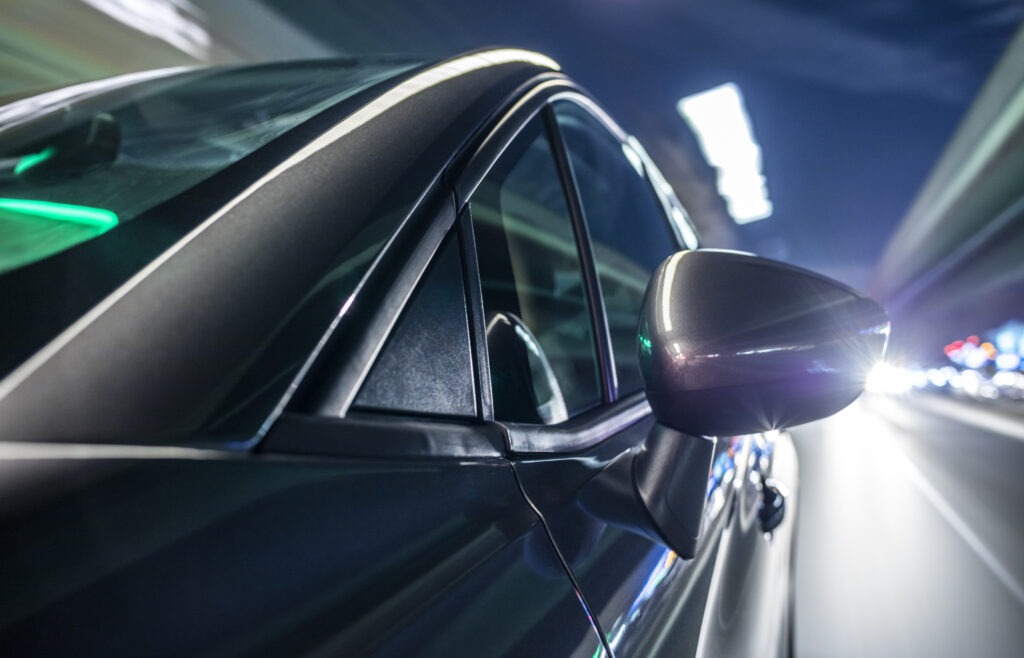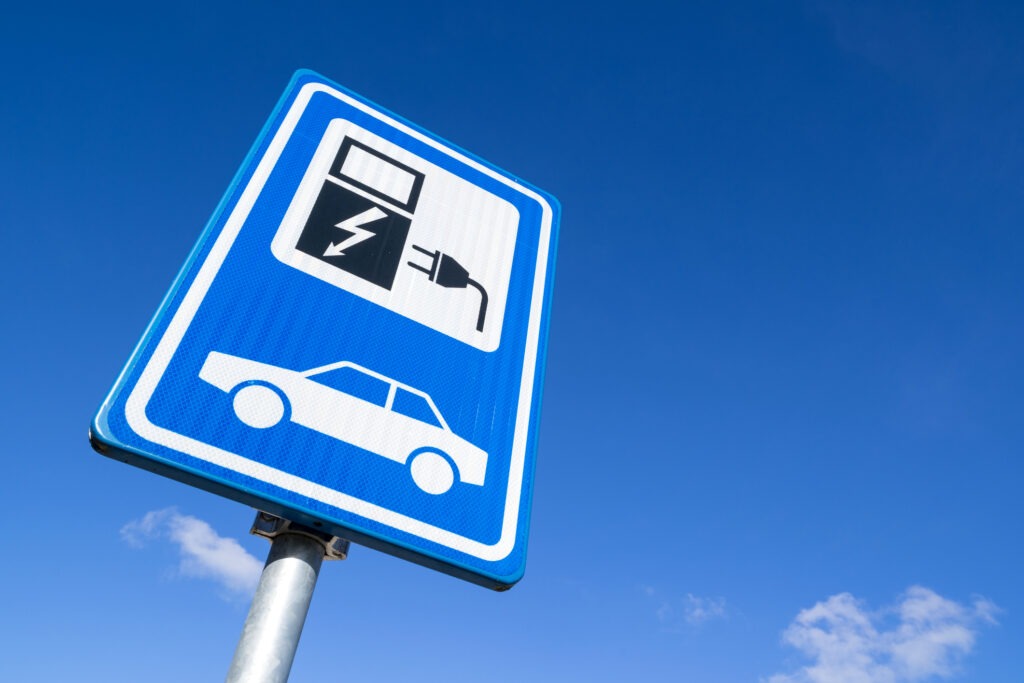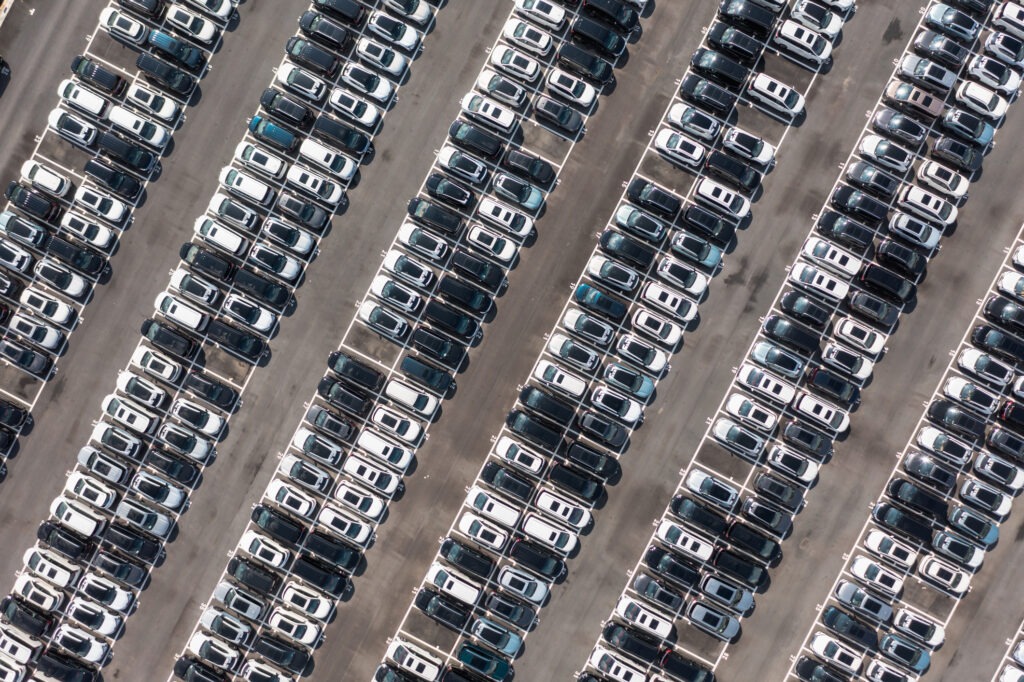Tesla starts strong with top two spots in Europe’s EV market
21 March 2024

Electric vehicles (EVs) enjoyed a positive start to 2024 in Europe, with Tesla driving registrations. José Pontes, data director at EV-volumes.com, reviews this performance with Autovista24’s editor Tom Geggus.
Despite several European markets dropping or amending their incentive programmes, battery-electric vehicles (BEVS) started 2024 strong. Registrations of these all-electric cars were up 29% year on year. Plug-in hybrids (PHEVs) also continued to grow, ending the month up 23% compared to January 2023.
Combining registrations of the two powertrains means the EV market sat at 198,993 deliveries in the month. Capturing 61% of Europe’s new plug-in market, BEVs started the year well ahead of PHEVs with 39%.
Looking at the overall market, BEV registrations made up 11.9% of all new-car deliveries in Europe, while PHEVs accounted for 7.7%. Outside of the EV market, full hybrids (HEVs) and mild hybrids (MHEVs) took a combined market share of 29.3%, up from nearly 27% last year. This meant that 49% of all new cars registered in Europe at the start of the year featured some form of electrification.
Meanwhile, petrol was down to a 35.8% share from nearly 39% in January 2023, while diesel fell from 16% to 11.9% compared to 12 months ago. Should this rate of declining demand continue, diesel deliveries could end around 2027.
Tesla takes top two
In January’s EV top 20, four out of five of the best-sellers were crossovers, highlighting the popularity of the vehicle type. Leading this charge was the Tesla Model Y with 11,425 registrations.
Helped by recent price drops, 2023’s best-seller got 2024 off to a good start. The Model Y enjoyed particular success in Germany, delivering 2,393 units. It was followed at a distance by France (1,477 units) and Belgium (1,323 units).
The Tesla Model 3 took second place with 6,479 registrations, with the sedan’s refresh allowing it to recover sales. Registrations were centred around France, which saw 1,623 Model 3 deliveries. This was some way ahead of the UK (770 units), Spain (737 units), and Germany (695 units).
The Audi Q4 e-Tron came third with 4,979 registrations, making it the best-selling model based on the Volkswagen (VW) Group’s MEB platform. The BEV is benefitting from the group’s prioritisation of more expensive and profitable models. The crossover recorded 1,424 registrations in Germany, 1,050 in the UK, and 728 in Belgium.
Near miss for Skoda
The Skoda Enyaq missed the top three, taking fourth with 4,816 registrations in January. Despite being beaten by its VW Group stablemate, with just 163 units separating the two, it was still a good month for the Czech model.
It can be expected to keep frequenting Europe’s top five throughout 2024. Germany was the best market for the model (1,457 units), with the UK a distant second (610 units). Meanwhile, Belgium saw the third-highest level of Enyaq deliveries (518 units).
The Volvo XC40 came in fifth, with its BEV and PHEV versions giving it a total of 4,554 registrations in January. Most of these registrations were from the BEV variant (4,371 units). The major markets for the XC40 were the Netherlands (1,021 units), Belgium (797 units), Sweden (567 units), and the UK (520 units).
This highlights the all-electric growth prospects for the brand, especially considering the high priority Volvo places on electrification. The arrival of Volvo’s first dedicated BEV, the EX30, is proof of the carmaker’s focus on the technology. In its first volume month, the model recorded 2,244 deliveries and can be expected to join the top 20 soon.
Mixed month for German brands
Outside of the top five, BMW had a strong month. The i4 secured ninth with 3,473 registrations while the 3-Series PHEV took 16th with 2,726 sales. Counted together, BMW’s midsize offering reports similar registration levels as the Tesla Model 3 (6,199 units).
Peugeot saw the e-208 return to form, finishing 11th in January with 3,275 registrations. This was the model’s best score since September following its refresh. The 308 also had a record month, with 2,637 deliveries putting it in 18th. This was in part thanks to the delivery ramp-up of its BEV version, with 577 units taking to Europe’s roads in January.
The Hyundai Kona EV, now in its second generation, joined the table in 20th (2,512 units). The electric crossover can be expected to be the Korean brand’s star player in Europe.
In the VW Group stable, the namesake brand experienced a slow January. Meanwhile, Audi’s good month continued, with the Q8 e-Tron ending 21st thanks to 2,507 deliveries. This put it ahead of the VW ID.4 (2,227 units) and ID.3 (1,998 units).
Only four models in January’s top 20 sat below the €35,000 threshold, including the MG4, the Peugeot e-208, the Fiat 500e, and the Dacia Spring. This shows that current EV trends are skewed towards higher-price segments.
One way to combat this would be to apply incentives to models below €30,000, while taxing bigger and more expensive EVs. This may initially benefit Chinese carmakers, but would also force domestic OEMs to ramp-up their production plans for more affordable models.
BMW leads the brands
In the brand ranking, BMW took the lead with a 10.3% share of the EV market. Tesla came second with a 9.1% share, while Mercedes-Benz finished third, just behind with 9%.
Audi (8.3% share) and Volvo (7.8% share) were not behind in fourth and fifth respectively. Tesla can be expected to return to the top of the leader board by the end of March, but BMW will not be far behind.
Outside of the top five, VW finished January in sixth with a 5% market share. The German brand started the year slowly, but will likely return to the top five soon. Meanwhile, Kia came seventh, matching VW’s 5%. Peugeot was eighth, with a 4.8% hold of the EV market.
With brands gathered under manufacturing groups, VW Group started the year in front with a 20.5% share. This was down slightly from 20.7% in January 2023. Second-place Stellantis claimed 12% of EV registrations, down from 14.1% recorded a year earlier.
BMW Group (11% share) started 2024 third, while Geely–Volvo placed fourth with a 9.6% share. Meanwhile, Mercedes-Benz was fifth, with 9.5% of the market.
Sixth-place Tesla (9.1% share) should gain positions as the year continues, while in seventh, Hyundai Motor Group (8.7% share) is also aiming for the top five.



